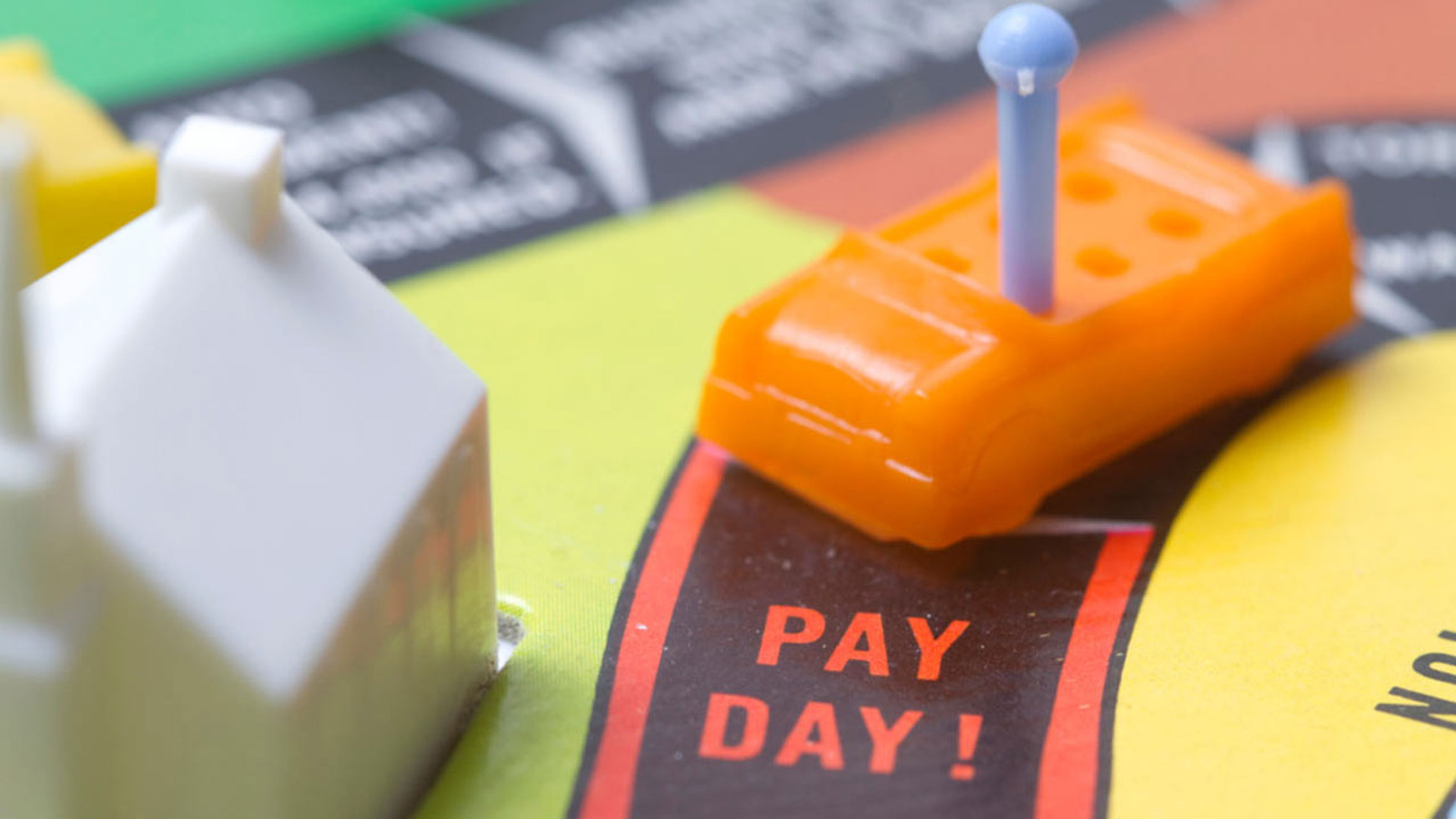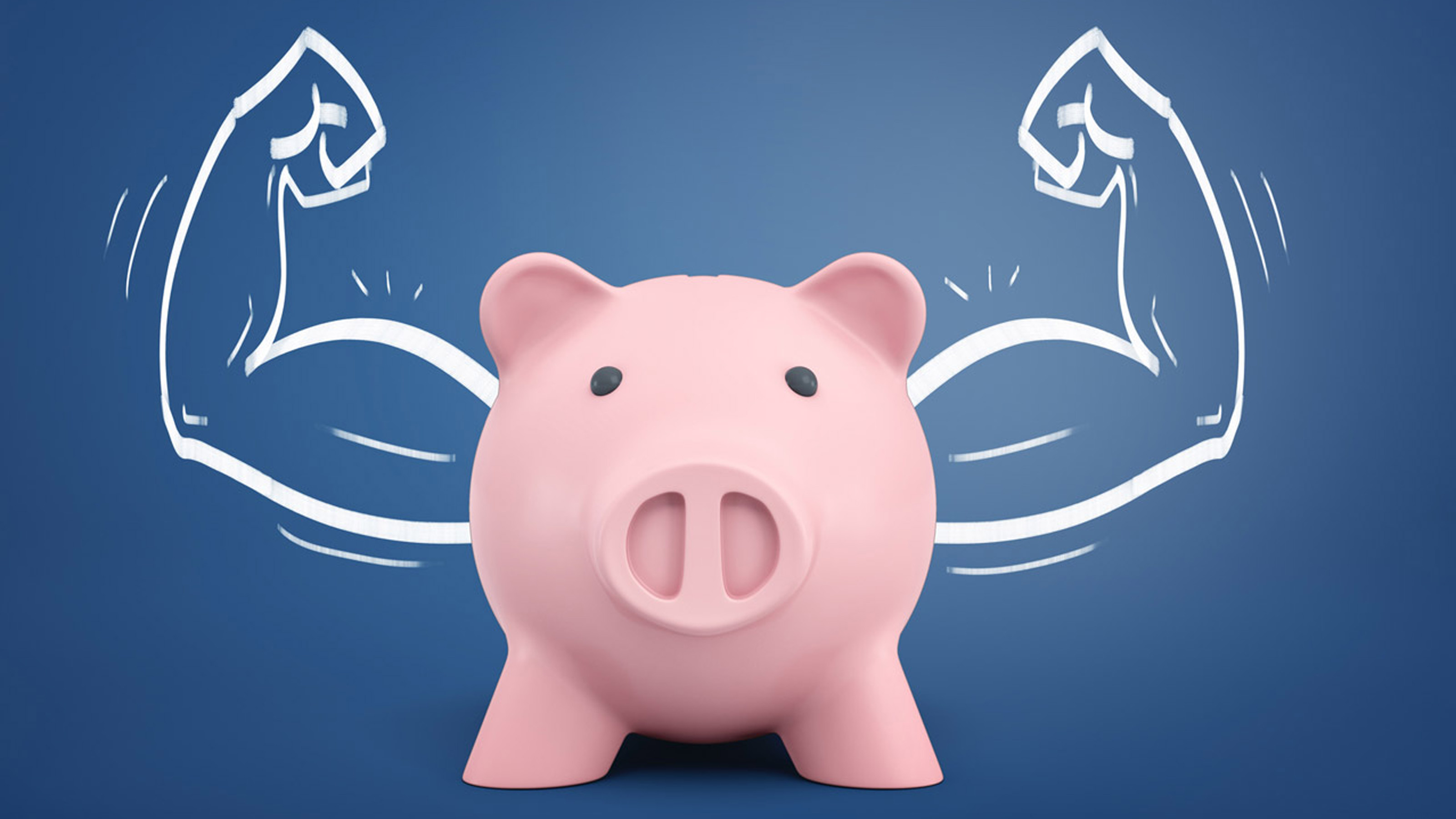How Healthy Is Your Retirement Plan in the Midst of the COVID Crisis?
Give yourself a financial checkup today to see if you’re doing all that you can to have a healthy and happy retirement. Here are eight tactics to help boost your bottom line.


Profit and prosper with the best of Kiplinger's advice on investing, taxes, retirement, personal finance and much more. Delivered daily. Enter your email in the box and click Sign Me Up.
You are now subscribed
Your newsletter sign-up was successful
Want to add more newsletters?

Delivered daily
Kiplinger Today
Profit and prosper with the best of Kiplinger's advice on investing, taxes, retirement, personal finance and much more delivered daily. Smart money moves start here.

Sent five days a week
Kiplinger A Step Ahead
Get practical help to make better financial decisions in your everyday life, from spending to savings on top deals.

Delivered daily
Kiplinger Closing Bell
Get today's biggest financial and investing headlines delivered to your inbox every day the U.S. stock market is open.

Sent twice a week
Kiplinger Adviser Intel
Financial pros across the country share best practices and fresh tactics to preserve and grow your wealth.

Delivered weekly
Kiplinger Tax Tips
Trim your federal and state tax bills with practical tax-planning and tax-cutting strategies.

Sent twice a week
Kiplinger Retirement Tips
Your twice-a-week guide to planning and enjoying a financially secure and richly rewarding retirement

Sent bimonthly.
Kiplinger Adviser Angle
Insights for advisers, wealth managers and other financial professionals.

Sent twice a week
Kiplinger Investing Weekly
Your twice-a-week roundup of promising stocks, funds, companies and industries you should consider, ones you should avoid, and why.

Sent weekly for six weeks
Kiplinger Invest for Retirement
Your step-by-step six-part series on how to invest for retirement, from devising a successful strategy to exactly which investments to choose.
As the world moves into yet another year of dealing with the persistent coronavirus pandemic, we’re all still struggling to wrap our minds around the many challenges we face.
First and foremost are ongoing concerns regarding the health of our families, friends, colleagues and others. But, of course, this isn’t just a medical crisis. For many, the pandemic is also taking a toll on their financial well-being. And the longer it drags on, the more it could threaten their ability to retire when and how they planned.
How can those workers avoid falling victim to a failing retirement?
For those who are out of work, the advice is fairly straightforward: Find good work as quickly as you can, and fight to remain extremely valuable to your employer.
For those who are still among the ranks of the employed, your financial outlook may be stronger. But if you’re worried about the health of your retirement plan, here are some remedies to consider:
The appearances in Kiplinger were obtained through a PR program. The columnist received assistance from a public relations firm in preparing this piece for submission to Kiplinger.com. Kiplinger was not compensated in any way.

Plan to work longer
This may be a bitter pill to swallow if you planned to retire soon. But it’s just a matter of doing some math. The longer you can keep working, the more you should be able to save for retirement — and you won’t have to spread the money you’ve saved over as many years. (For an eye-opening look at how long you might have to make your retirement income last, check out the Social Security Administration’s life expectancy calculator.)

Spend less and save more
Have you reworked your budget to reflect the changes in your expenses since the pandemic started? If you’re spending less on things like clothing, transportation and entertainment, can you set aside a bit more toward your savings and investments? Even a small increase in savings each month — or each paycheck — could result in a big improvement in your lifestyle down the road. And if you can keep expenses low, you’ll be able to draw less from your savings in retirement, which means your nest egg will last longer.

Invest with a long-term approach
The longer you can put off withdrawing money from your retirement accounts, the longer you may feel comfortable with a more moderate or even aggressive portfolio mix that could help keep your money growing. Even in retirement, you may wish to keep a segment of your portfolio invested in equities to mitigate inflation risk.

Utilize income-focused investments
All investments are not created equally when it comes to providing retirement income. With dividend-paying stocks, for example, even if the value doesn’t rise, the stock will pay you just for owning it, which makes this a dependable income source. And reliable income is key to a successful retirement.


If you’re already retired, get a part-time job
Nothing takes the pressure off a fragile nest egg like a new source of income. Working part time after retirement could:
- Help you maximize your Social Security benefits by allowing you to delay claiming until you reach your full retirement age.
- Help you hold on to your savings longer.
- Provide an opportunity to face new challenges and make new friends (which could be good for your health).

Insure against health care catastrophes
A costly stay at a nursing home can drain a nest egg faster than pretty much any other event. According to Genworth’s annual Cost of Care Survey, the median monthly cost of a private room in a U.S. nursing home in 2020 was $8,821. And Medicare generally doesn’t cover long-term custodial care. So now is the time to make a plan for how you’ll pay for long-term health costs should you or your spouse require this type of care in the future.

Employ tax-sensitive strategies
If you’re over 59½ and expect to earn less because of COVID-19, or you want to take advantage of lower tax rates that are scheduled to sunset at the end of 2025, you may want to consider moving money from a tax-deferred retirement plan (a 401(k), 403(b) or traditional IRA) to a Roth IRA or some other tax-free investment vehicle. You’ll have to pay income taxes now on the money you convert to a Roth, but if you expect tax rates to go up in the future (and many experts do), you may benefit from this strategy when you retire. While you’re at it, speak to your financial adviser about creating a sound withdrawal strategy that could further minimize the taxes you owe in retirement.
While none of these remedies on its own is a sure cure for frail finances, combined they may provide the shot in the arm your retirement plan needs right now. That’s why most financial professionals suggest developing a proactive income and investment plan, followed by regular checkups to review and make adjustments each year.
Profit and prosper with the best of Kiplinger's advice on investing, taxes, retirement, personal finance and much more. Delivered daily. Enter your email in the box and click Sign Me Up.

As Founder of Elevated Retirement Group, Inc., Scott Dougan has built a comprehensive retirement planning company focused on helping clients grow and preserve their wealth. Under Scott’s leadership, a team of experienced financial advisers, Certified Financial Planners (CFP®) and CPAs use tax-efficient strategies, professional investment management, income planning and proactive health care planning to help clients feel confident in their financial future — and the legacy they leave behind. Scott has also written a book titled “Exceptional Retirement: Tools and Strategies for Retiring on Your Terms” (click here to request a free copy). You can find Scott on YouTube by clicking here, where he creates educational videos for those near retirement. If you would like to talk to Scott’s team, you can schedule a call by clicking here.
-
 Ask the Tax Editor: Federal Income Tax Deductions
Ask the Tax Editor: Federal Income Tax DeductionsAsk the Editor In this week's Ask the Editor Q&A, Joy Taylor answers questions on federal income tax deductions
-
 States With No-Fault Car Insurance Laws (and How No-Fault Car Insurance Works)
States With No-Fault Car Insurance Laws (and How No-Fault Car Insurance Works)A breakdown of the confusing rules around no-fault car insurance in every state where it exists.
-
 7 Frugal Habits to Keep Even When You're Rich
7 Frugal Habits to Keep Even When You're RichSome frugal habits are worth it, no matter what tax bracket you're in.
-
 For the 2% Club, the Guardrails Approach and the 4% Rule Do Not Work: Here's What Works Instead
For the 2% Club, the Guardrails Approach and the 4% Rule Do Not Work: Here's What Works InsteadFor retirees with a pension, traditional withdrawal rules could be too restrictive. You need a tailored income plan that is much more flexible and realistic.
-
 Retiring Next Year? Now Is the Time to Start Designing What Your Retirement Will Look Like
Retiring Next Year? Now Is the Time to Start Designing What Your Retirement Will Look LikeThis is when you should be shifting your focus from growing your portfolio to designing an income and tax strategy that aligns your resources with your purpose.
-
 I'm a Financial Planner: This Layered Approach for Your Retirement Money Can Help Lower Your Stress
I'm a Financial Planner: This Layered Approach for Your Retirement Money Can Help Lower Your StressTo be confident about retirement, consider building a safety net by dividing assets into distinct layers and establishing a regular review process. Here's how.
-
 The 4 Estate Planning Documents Every High-Net-Worth Family Needs (Not Just a Will)
The 4 Estate Planning Documents Every High-Net-Worth Family Needs (Not Just a Will)The key to successful estate planning for HNW families isn't just drafting these four documents, but ensuring they're current and immediately accessible.
-
 Love and Legacy: What Couples Rarely Talk About (But Should)
Love and Legacy: What Couples Rarely Talk About (But Should)Couples who talk openly about finances, including estate planning, are more likely to head into retirement joyfully. How can you get the conversation going?
-
 How to Get the Fair Value for Your Shares When You Are in the Minority Vote on a Sale of Substantially All Corporate Assets
How to Get the Fair Value for Your Shares When You Are in the Minority Vote on a Sale of Substantially All Corporate AssetsWhen a sale of substantially all corporate assets is approved by majority vote, shareholders on the losing side of the vote should understand their rights.
-
 How to Add a Pet Trust to Your Estate Plan: Don't Leave Your Best Friend to Chance
How to Add a Pet Trust to Your Estate Plan: Don't Leave Your Best Friend to ChanceAdding a pet trust to your estate plan can ensure your pets are properly looked after when you're no longer able to care for them. This is how to go about it.
-
 Want to Avoid Leaving Chaos in Your Wake? Don't Leave Behind an Outdated Estate Plan
Want to Avoid Leaving Chaos in Your Wake? Don't Leave Behind an Outdated Estate PlanAn outdated or incomplete estate plan could cause confusion for those handling your affairs at a difficult time. This guide highlights what to update and when.
